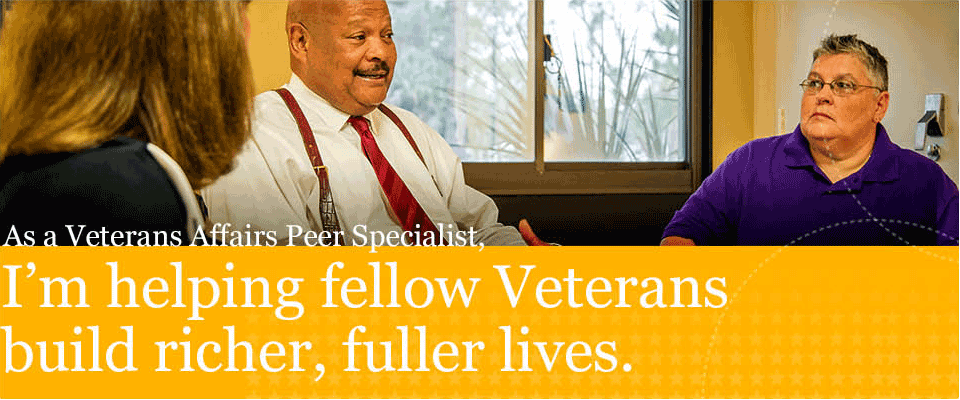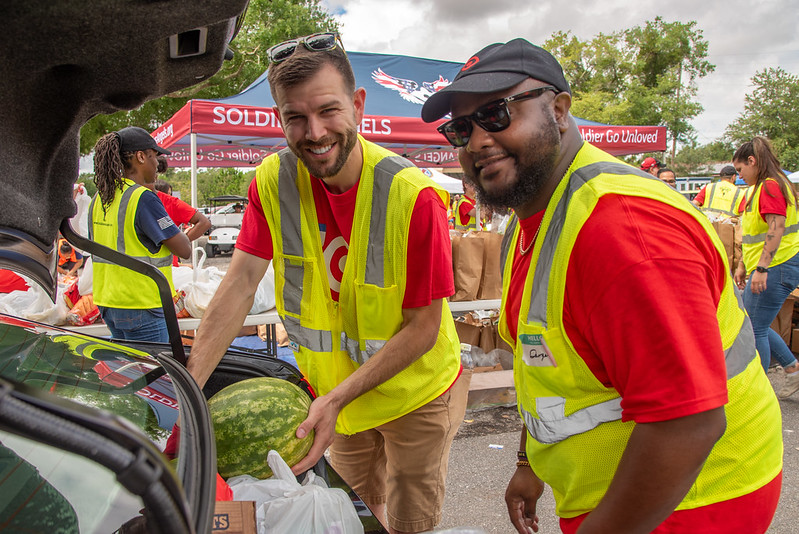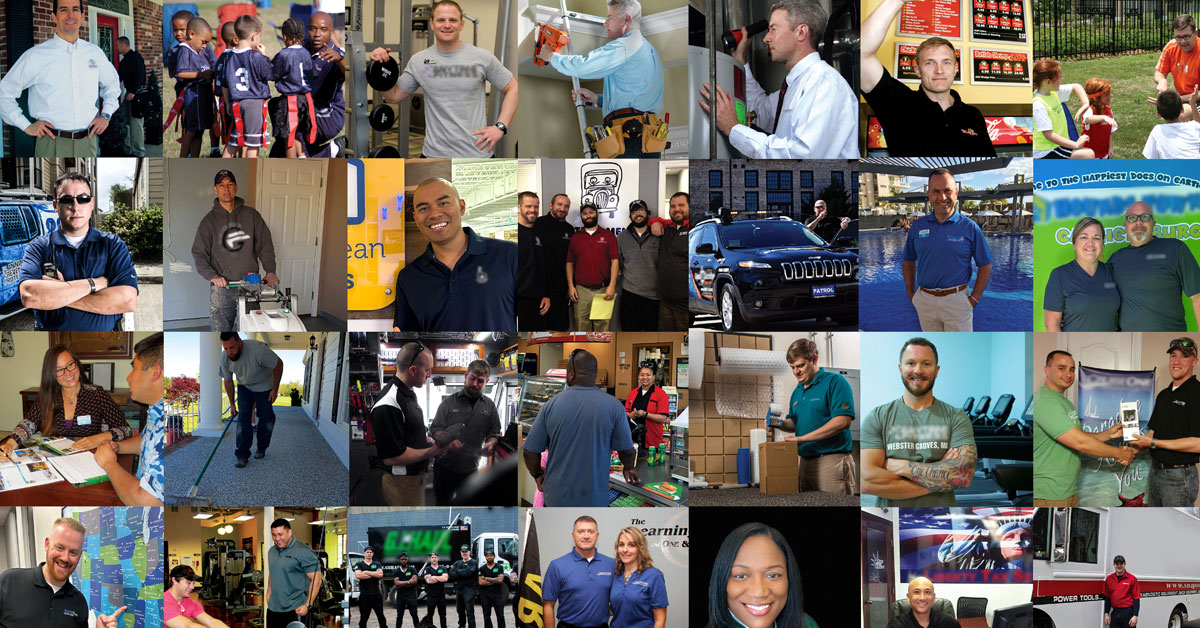 It was mid-November 2004. I was on a mission with other Marines to pick up enemy prisoners of war, south of Highway 10, in the Jolan District of Fallujah, Iraq. We drove past the same green bridge where four U.S. contractors had been killed a few months earlier. As we neared our destination, we rolled up to where fellow India Company Marines were taking fire. We stopped and joined the intense urban combat ambush that was in full swing. The horror of the battlefield surrounded me — Marines going down from enemy gunfire. As the fight boomed around me, the next thing I remembered was a smiling Marine extending his hand to pull me up. I had been knocked out from the concussion of an Abrams main battle tank firing a round. I got up and continued the mission.
It was mid-November 2004. I was on a mission with other Marines to pick up enemy prisoners of war, south of Highway 10, in the Jolan District of Fallujah, Iraq. We drove past the same green bridge where four U.S. contractors had been killed a few months earlier. As we neared our destination, we rolled up to where fellow India Company Marines were taking fire. We stopped and joined the intense urban combat ambush that was in full swing. The horror of the battlefield surrounded me — Marines going down from enemy gunfire. As the fight boomed around me, the next thing I remembered was a smiling Marine extending his hand to pull me up. I had been knocked out from the concussion of an Abrams main battle tank firing a round. I got up and continued the mission.

In April 2012, Berg was the battalion guide for the change of command ceremony at Camp Leatherneck, Afghanistan. He was in Security Platoon, General Support Motor Transport (company), 1st Maintenance Battalion, 1st Marine Logistics Group, 1st Marine Division. This was about a year after coming out of the U.S. Marine Corps Wounded Warrior Regiment and returning to duty.
Having “borne the battle,” I’ve been on both the receiving and providing sides of services as a Veteran and a VHA Peer Support Specialist. I went from undergoing cognitive processing therapy as a patient to co-facilitating with the same licensed clinical social worker to a group of 20 Veterans. Using my perspective as a Veteran and being comfortable with using the co-facilitating technique helped the therapist use my experiences to exemplify the role and benefits of the PSS Program to others. Through this more personalized outreach to Veterans, the PSS program is helping VA transform its traditional counseling services.
Ten years ago, I would not have been willing to share any stories from my battlefield experience. In 2006, I reached out to VA for help at a nearby Vet Center. I went through their counseling and training, and attended VA support group meetings. After completing my cognitive processing therapy and prolonged exposure training programs, I was selected to participate in a new VA program – the Peer Support Specialists Program (PSS).
VA now has more than 930 Peer Support Specialists delivering voices of inspiration, hope and courage to Veterans. These individuals have embarked on a passionate journey of embracing empathy as a tool for healing. VA now offers Veterans the opportunity to work with a Peer Support Specialist, a combat Veteran who has experience dealing with “invisible wounds.” This Veteran-to-Veteran connection provides respect and credibility to the program. The therapeutic bond between Veterans helps to build rapport and encourages Veterans to access care for mental health issues, support for vocational goals, and assistance when applying for benefits and navigating the web of VA rules, regulations, and policies.

Berg hands a PTSD awareness wristband to a young girl at an Altoona Curve baseball game. The information booth featured MyHealtheVet and PTSD information.
The Peer Support Specialist is like a battle buddy wearing many different hats: a tour guide, life coach, inspirational speaker, friend, patient advocate, community planner, educator, and benefits coordinator. During group therapy and individual therapy sessions, the PSS story focuses on a “recovery story” instead of an “illness story.” Within the recovery story, there are coping strategies for the same obstacles and barriers that individuals face when dealing with extreme difficulties. The story brings comfort, validation and acceptance for those who have borne the battle.
Shortly after beginning my new job as a PSS, I attended a group therapy session with more than 20 combat Vietnam Veterans. It was a slow process of warming up before the group embraced me as one of their own. We connected on an intimate level — joining together in the therapeutic process. As the weeks went by, one Veteran, “Pepper” [not his real name], stood out to me as a quiet and reserved individual during our roundtable talks. When it was his turn to speak, Pepper would quickly say, “I’m 110 percent today.” It appeared to me that he preferred to listen, rather than speak.
Then, during one of our Friday afternoon sessions, the floor was open for group members to speak. Pepper began to tell the group about his struggles in life. You could have heard a pin drop. He spoke of his nightmares, dreams, pain, frustration and worries. He spoke of his military service and the day of the injury, and about what had happened to him. Tears ran down his face.

Berg and Marine Sgt. Trey Peters sit at a VA information booth during an Altoona Curve baseball game. The two deployed together to Afghanistan from 2011-2012.
Overwhelmed, I felt the same, and my own waterfall of wounds swelled up inside. I was speechless. Pepper pointed to me and said, “I’ve spent 50 years dealing with this and have never told a soul. The only reason I did, was because of you.”
“How did I unlock his pain from all these years?” I wondered. This was the power of peer support. I listened and he felt understood. All that anyone wants to feel is understood by others.
From my experience — whether it’s being understood or just listened to — Veterans need to feel a connection with their health care provider.
On the road to, or in recovery, we may go fast, slow, hit obstacles, and even crash at times. The important thing to remember is that the road of life isn’t traveled alone; and this is evident in the PSS program. Others have gone down the road before you, and others will also travel a similar road behind you. This is where Peer Support Specialists can come in and help you to navigate the map of life (recovery). I believe in never leaving a fellow Veteran behind.
More about Peer Support Specialists can be found at: http://www.vacareers.va.gov/peer-to-peer/index.asp

Topics in this story
More Stories
Soldiers' Angels volunteers provide compassion and dedication to service members, Veterans, caregivers and survivors.
Veterans are nearly three times more likely to own a franchise compared to non-Veterans.
The Social Security Administration is hoping to make applying for Supplemental Security Income (SSI) a whole lot easier, announcing it will start offering online, streamlined applications for some applicants.






We certainly have been taking it on the chin at the VA lately. However I must say this is encouraging to see someone like Baren taking a leading role. I am hopeful that we can find more like him that we can call the face of the VA.
Berg, you are an all-encompassing warrior, and an amazing, compassionate, and unique human being. Thank you for sharing…keep it up Marine!
Baren Berg is currently training with me to complete his Certified Black Belt in Six Sigma with the “Wings for Heroes” campaign that ex Vietnam Veteran Marine Corp Officer Dr. Mikel J. Harry has created to give back to our soldiers coming home.
He is an amazing individual of incredible human character. We work hard at training him to become a leader in the problem solving world as a Business Improvement Professional (BIP) in Six Sigma.
My weekly work sessions with him are so rewarding that it truly makes volunteering as his mentor a special experience. This article is written so well, and just reading it makes me well up with emotion and pride for him as towards the journey he is traveling.
These soldiers are truly hero’s, because without them we could not enjoy the freedoms that we take for granted.
“Thank you Baren Berg, awesome job as always and truly exceptional piece on your life experiences!”
Great story and great profession, nobody will ever be able to relate quite like the battle buddy sitting across from you. Peer support in VA should be expanded and receive higher GS band authorization.
I have felt that pain before and with help I am well on the road to recovery.
I am a Vietnam and Desert Storm veteran I participate in a group therapy with peer support our group leaders are 2 younger veterans an Army retire vet and a former Marine in this group we have veterans of all branches of the military young and older veterans I believe that because we can speak to an actual war veteran everyone in that group can feel at ease we have all walked the same path in trying to get our life’s back we learn from each other and the best thing we SUPPORT each other as fellow warriors no one is right or wrong we all lost something while in combat situations and we are all trying to COPE with our life’s and families.
It is so sad that us the VIETNAM veterans opened the door for some of these therapies I hope the VA keeps this as a group therapy for future veterans and the VA keeps research to help all veterans in gaining that LIFE one lost during COMBAT. All veterans look for each other in order to feel safe Peer- Peer group reaches that to the veterans a close BROTHERHOOD.